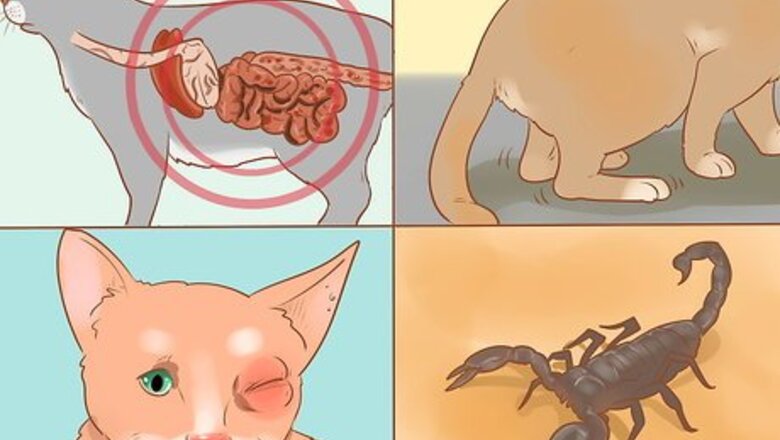
views
Diagnosing Pancreatitis in Cats
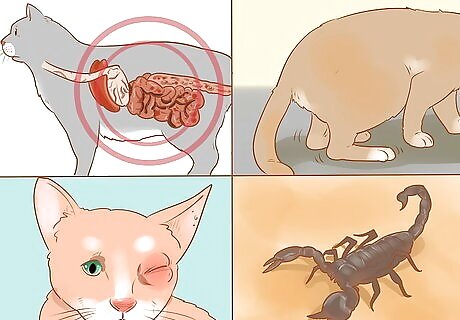
Recognize possible causes. There are a number of known causes of feline pancreatitis. However, feline pancreatitis sometimes occurs for reasons unknown. Some of the documented causes of pancreatic inflammation in cats include: Inflammatory bowel disease or liver disease. Diabetes mellitus. Abdominal trauma (such as being hit by a car). Infections (such as toxoplasmosis or feline distemper). Scorpion stings.
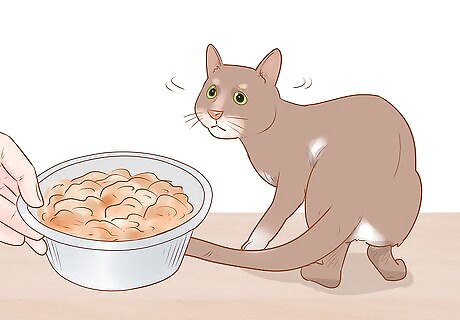
Notice any behavioral changes. This two most common symptoms of pancreatitis in cats are lack of appetite and severe lethargy. If your cat has stopped eating and/or seems unusually sleepy, weak, or lethargic, take them to see the vet immediately. Pancreatitis can be lethal if not treated right away. Lack of appetite and lethargy can be symptomatic of many other conditions as well. Any time your cat stops eating or seems listless they need to be taken to a vet right away.
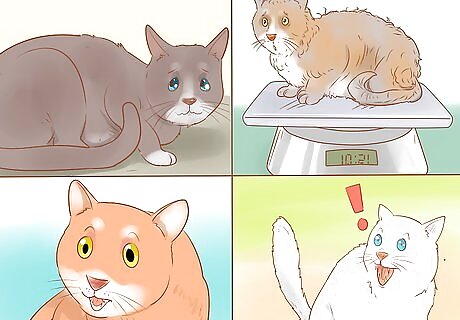
Look for additional symptoms. Beyond simple lethargy and loss of appetite, there are other symptoms that can indicate inflammation of the pancreas. If you observe any of these symptoms in your pet, seek the advice of a veterinarian. Other symptoms can include: Fever. Weight loss. Dehydration. Depression. Increased heart rate. Difficulty breathing.
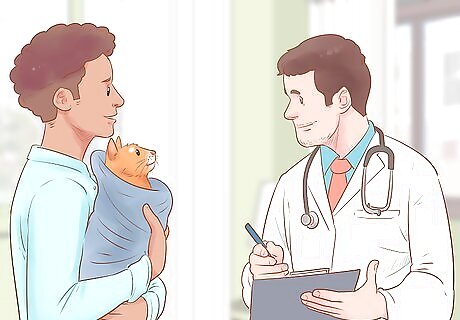
Be prepared to answer some questions. When you visit your vet, you must bring along some information. In order to properly diagnose your cat, your vet will ask a series of questions. You should be able to explain: The complete medical history of the cat (to the best of your knowledge). What (if any) medications your cat is taking. What symptoms you have noticed. When these symptoms began. If your cat has experienced any physical trauma.
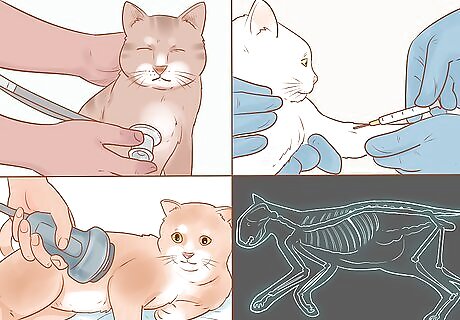
Run some tests. In order to determine what is ailing your pet, the vet will need to perform a series of tests. In order to diagnose pancreatitis, these tests will likely include: A physical examination. Blood work. An ultrasound. A biopsy (if the cat is well enough to undergo the procedure). X-rays (to rule out other problems or asses trauma).
Treating Pancreatitis in Cats
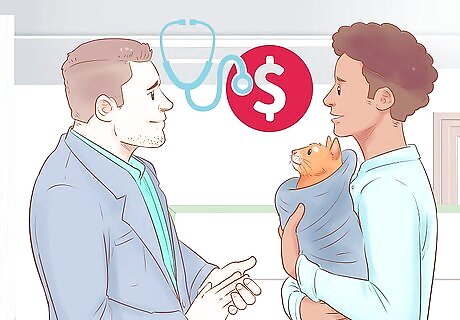
Make sure you can afford treatment. Pancreatitis does not have a standard cure. Instead, pancreatitis treatment is symptomatic and supportive, meaning that individual symptoms are dealt with and the cat's health is supported until the inflammation goes down. This generally involves around-the-clock care in a veterinary in-patient facility, and may also include medication. As such, the treatment of feline pancreatitis can cost thousands of dollars. Discuss the cost of treatment with your vet. Be prepared to put down at least half of the anticipated cost prior to treatment.
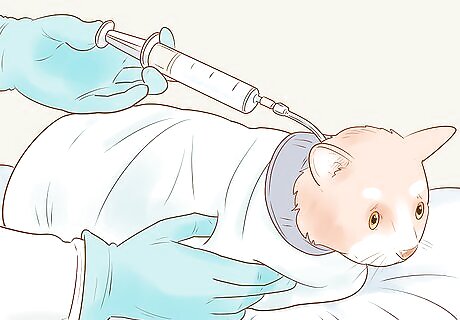
Ensure adequate nutrition and hydration. The best way for your cat's health to be supported as they heal from pancreatitis is to ensure that they stay hydrated and fed. Your vet may prescribe fluid therapy in order to keep your cat hydrated. They may also insert a feeding tube to keep your cat fed.
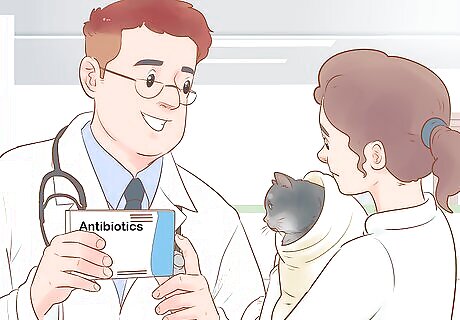
Provide medication for your cat. In addition to providing support, your vet will do whatever they can to treat acute symptoms. These symptoms will vary from cat to cat. Your vet my suggest any combination of the following: Anti-nausea medication (to stop any vomiting). Antibiotics (to treat infection). Pain medication (to help with pain). Corticosteriods (to reduce inflammation).
Managing Feline Pancreatitis at Home
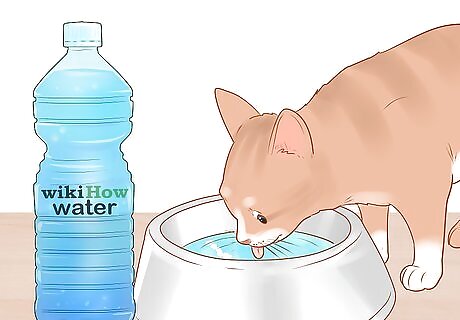
Monitor your cat's hydration. Hopefully, after a day or two your cat will be well enough to go home. Once at home, it is imperative for you to continue monitoring their hydration for at least the first week. Provide clean water. Make sure your cat is drinking every day. Make sure your cat is urinating every day. Follow any additional instructions from your vet.
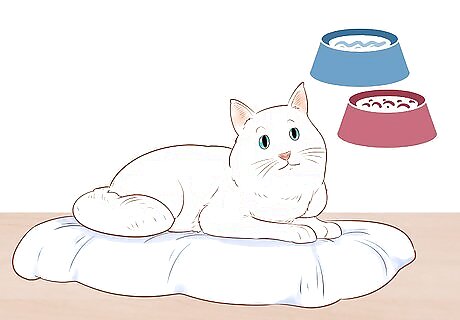
Ensure that your cat gets adequate rest. After your cat returns home, they will need to rest and heal. You may need to limit your cat’s activity level in order to accommodate this. Make food and water bowls easily accessible. Make litter box(es) accessible. Limit play. Limit contact with other animals.
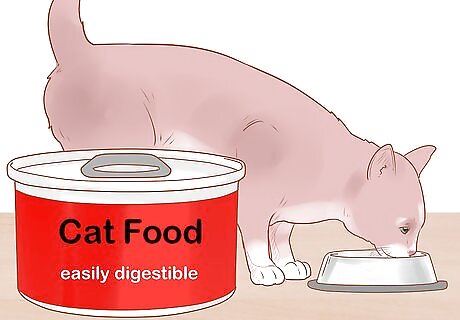
Provide your cat with easily-digestible foods. It is important for cats to continue eating healthy food during recovery. Unlike dogs, cats do not need to avoid food, and they do not need to consume a low-fat diet. Canned food is your ideal choice, if your cat will eat it. Provide cat food that : Is soft. Is easily digestible. Contains protein. Contains fat. Recommended and/or prescribed by your veterinarian.
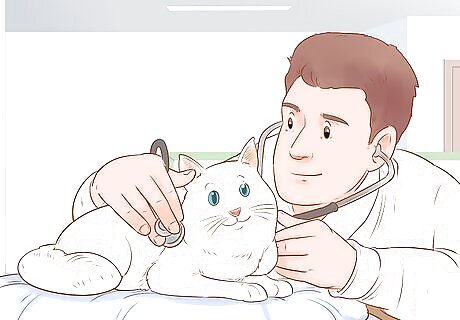
Attend any follow-up appointments. Your veterinarian will want to schedule one or more follow-up appointments in order to ensure that your cat is healing properly. Be sure that you attend these appointments in order to best ensure the health of your cat. The number of and time-frame for these appointments will vary from cat to cat.
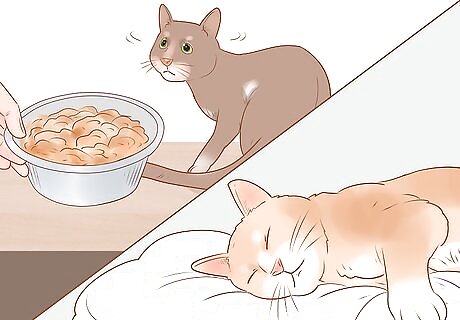
Look for the reemergence of symptoms. In some cats, the onset of pancreatitis results in chronic pancreatic inflammation. If you should notice the reemergence of any symptoms, take your cat to the vet right away. Once again, these symptoms may include: Loss of appetite. Severe lethargy. Fever. Weight loss. Dehydration. Depression. Increased heart rate. Difficulty breathing.


















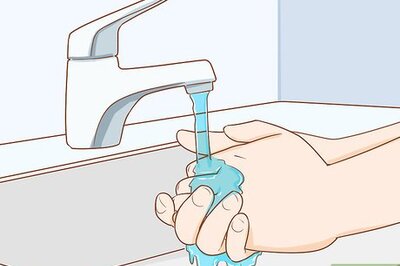
Comments
0 comment